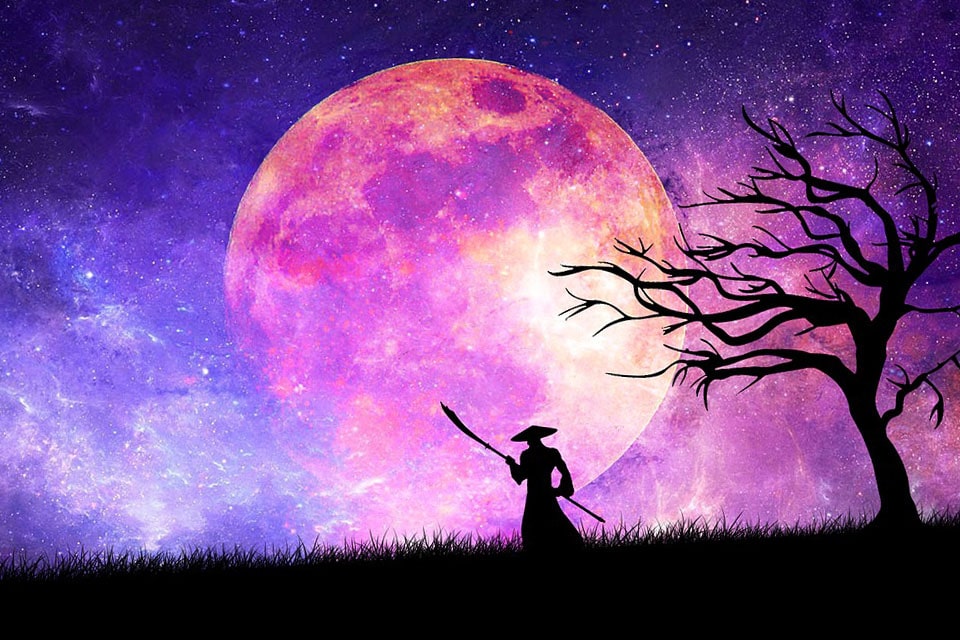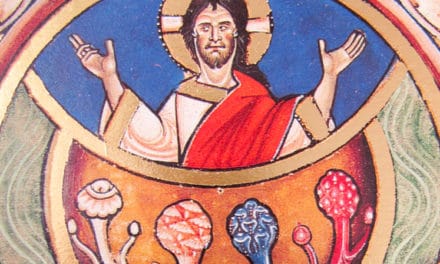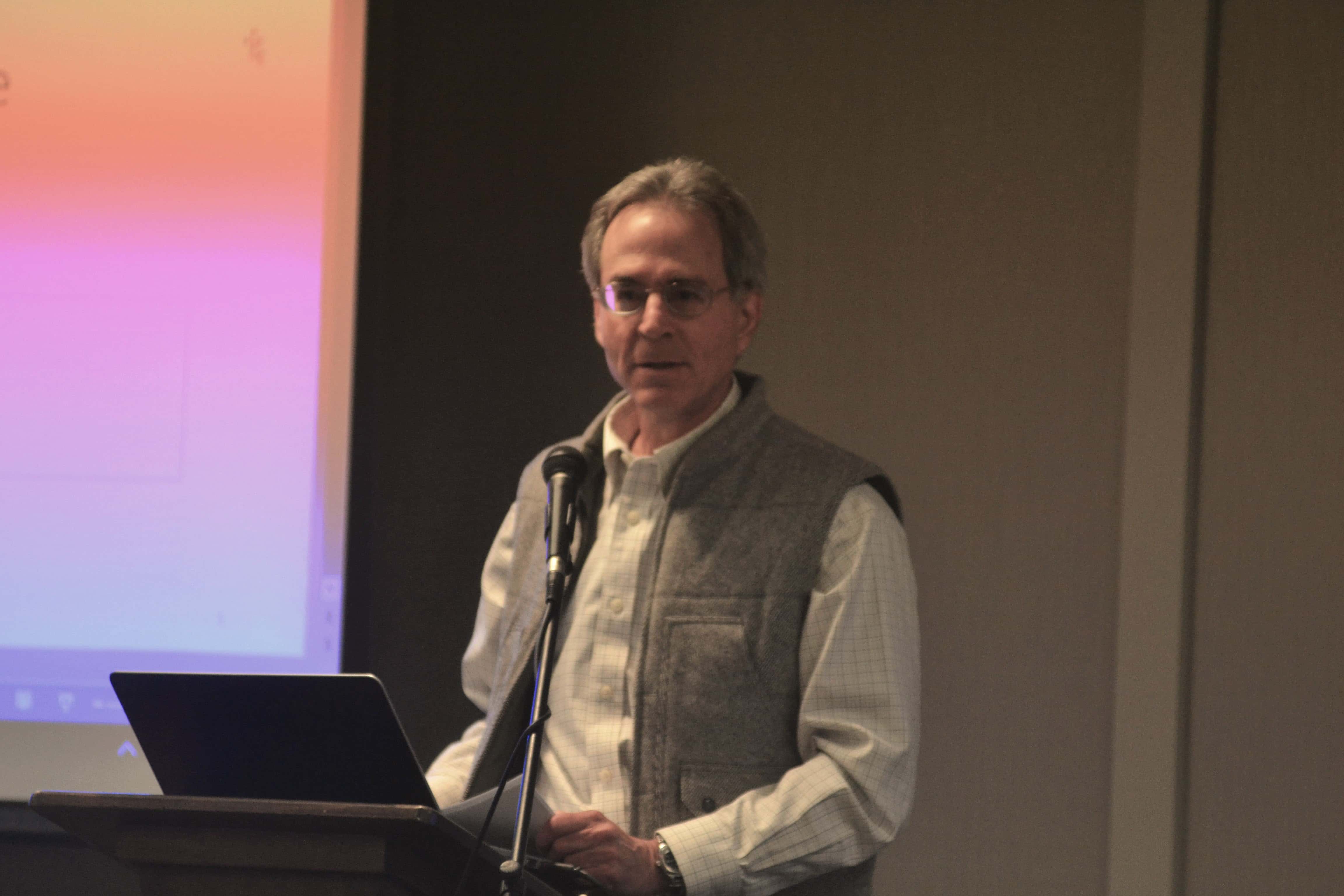
Spirituality is a charged subject in our culture, especially when related to things like martial arts or psychedelics. Yet, despite our culture’s uneasy relationship with “spiritual” subjects, there is a veritable gold mine of insights one can draw from when relating these intense practices to what it means to be alive, and how to grow, expand, and level-up in life in a deeply fulfilling way. Often the path is not easy, but proves to be well worth it in the long run.
Author Richard Haight is uniquely poised to speak about these new and ancient connections. Richard is a martial artist and meditation teacher who has authored many books on self improvement, and his most recent work The Psychedelic Path: An Exploration of Shamanic Plants for Spiritual Awakening describes his adventure into nonordinary experiences with psilocybin, ayahuasca, and Salvia divinorum. We spoke with Richard recently from his home in Oregon about his own journey, challenges and revelations.
Thanks so much for speaking with us, Richard. Can you share a bit about your background?
It started when I was about 8 years old. I had a visionary dream where I made a promise to dedicate my life to the search for spiritual truth. Of course, at 8 years old you don’t really know what that means, but it started then. In the vision I had, I was told that I had to find the answers for myself, that I couldn’t rely on anybody or on any pre-established knowledge.
In a visionary state, either natural or unnatural, the essential points are not very different. There’s a lot of overlap. When you’re having a vision, you feel like everything is Now. In the moment, it feels like time does not really exist, but the vision actually works its way into your life over time. The structures of your life and your relationships start to change and shift in a new direction before you can fully embody the wisdom that has been passed on to you. So it’s not like this instant thing, despite what a lot of self help books say. Sorry! (laughs).
I grew up in a small rural town in Southern California, and my only access to any sort of spirituality was Christianity from my neighbor, who was doing bible study classes. I took some of those classes. but I just felt something not-quite-right about it, so I had to abandon that approach. So I basically fumbled around for about 8 years with this expectation that I was going to discover something really important that I need to share with the world. Starting at like age 8, of course, you’re doomed to failure, and that expectation became a giant demon of self-criticism. The inner critic was just tormenting me constantly. I couldn’t do anything without this self-judging voice: “That’s not right, you suck”- you know? And so by the time I was 16, I became suicidal.
Oh wow, that’s an intense journey for an 8-16 year old. How did you emerge from those suicidal feelings?
I was in my room, I remember it was a summer afternoon, and I decided that that was the day. I had already acquired my method, which was a pistol. I was going to do it right. I wrote a quick note to my family saying “I love you, but I can’t make you understand this.” I just didn’t want to live my life anymore; I felt I was a total, utter failure. I had not lived up to my promise and didn’t think I ever would.
Once I had clearly sorted everything out, I just took a moment to be. I was caught up in this silent space, and all of a sudden there was no “me.” I don’t know how long it was, but time essentially disappeared. It could have been a second, it could have been 10 minutes. I had no idea, but it was just this vast vastness. But it felt great.
My eyes were drawn to the window. Rays of light were coming through the window and intersecting with the dust particles in the air. They would sparkle, and it was captivating, like little angels. It was very deeply inspiring, and this energy filled up in my body and a voice came to my chest, and it continued a thought that I had prior to the silence starting, and the thought was “now it’s time to kill myself,” but then it continued “…or you could change your life. You could get rid of these friends who are not really your friends, who are doing lots of drugs and alcohol that were not well-intended. You could find friends who are doing things that you respect and who are going in the direction that is healthy.” It just kind of laid out how to change my life.

I can’t explain it- even now it’s very hard to describe, but I think people who have done psilocybin or who have had powerful mystical experiences could understand how you would trust that voice. If it were a person who gave that message to me, I would have rejected it. I would have thought they didn’t know what they were talking about, that they didn’t know how utterly useless I was as a human being. But this voice, for some reason, I just trusted it. The direction was so clear, and so I just cut off those friends. That’s step one in self help: cut off people that are toxic in your life, cut ‘em off!
So at that point, I began this process of trying to find the path. I had a girlfriend just about that time, and one day I ran into her while she was meditating. I didn’t know what she was doing, so I asked her. She opened her eyes and said “I’m meditating.” What’s meditation? So she gave me this very basic description, and I tried it, and had a profound experience. I became curious about meditation and began exploring it deeply.
Eventually I went to Japan and spent 15 years studying Japanese martial arts: Kenjitsu, a sort of battlefield combat swordsmanship. Aiki Jujitsu, short staff, meditation, healing arts… I just immersed myself into that training. When you study these arts, there’s a perspective that you begin to acquire that starts to filter into your life, which is essentially that you are walking this thin line between life and death. You have this global awareness that you keep, and when awareness collapses, that’s an opening, an imbalance. So you start trying to apply it to your daily life and everything you do so that it all sort of lines up, and that’s the approach that I used to develop the meditation that I do and that I teach. It’s coming from that razor’s edge of awareness, and so it is quite unique from other forms of meditation which may be passive. Instead, the practice has to be incorporated into your daily life. You’re walking through your life working in meditation and a heightened awareness state, a globally aware state. This is the same approach that I went into psychedelics with, and it turns out it’s a tremendously powerful approach to diving into that inner or undigested disharmony within the psyche.
That’s awesome. It’s funny, myself I have a background in Western olympic style fencing.
Could you relate to what I was saying about martial arts?
Yes, somewhat. I did fencing more as a competitive sport, so it was missing that deeper spiritual context. My own spiritual scaffolding was built through the help of my grandmother Beverly who introduced me to the Tao te Ching, Yogananda and his work with Self Realization Fellowship, and Advaita Vedanta. So that was in the background, but never really married to my fencing. How was your martial arts practice linked to your meditation practice?
Whenever you’re fencing man-on-man, the tendency is to hyperfocus your senses on the target right in front of you, but when you do that you lose context. And it changes your movement- essentially, you’re leaning in one direction. The result is a completely different psychological state. You wouldn’t think that battlefield combat can lead to a spiritual awareness, but, counterintuitively, it absolutely can.
I imagine that with most of the samurais who died on the battlefield, their awareness got caught up in the person right in front of them and they got stabbed in the back. When you look at the transcendental masters across traditions, what they are doing is being globally aware: they are feeling and aware in every direction. When you take that same kind of awareness and really delve deep into it, what starts to occur is your body will move on its own. Thought is a very slow way for information to travel. So say the person in front of you attacks: you have to actually receive that information through your eyes into your brain, the signal has to be translated and then travel through your nervous system, a movement needs to be decided upon, and then that signal travels back in order to get your body to move. You’re dead if the guy is a skilled attacker. If he knows how to cut well, you’re just done. There’s no room for thought.
When you explore this global awareness, your body becomes aware and movement occurs on its own, and you don’t really know what’s going on until after it’s over. You can remember what your body did, but you didn’t choose it, as if it has a mind of its own. In that process, you’re cutting out cycles of activity that are too slow. This is the very same approach I applied to the psychedelic process. It heightens the experience tremendously because you’re not taking those cycles into the process.
Speaking of psychedelics, as you described in the book, you were initially cautious about psychedelics and a purist in many ways when it came to meditation. I’m curious, now that you’ve taken this leap into these psychedelic experiences, how do you see psychedelics in a spiritual context? How has your perspective evolved now that you’ve had these experiences?
I look at the whole process of psychedelic journeying, and really anything that we do in in life, at a more fundamental level. When we look at human consciousness there’s the overt action where someone is taking a psychedelic, which is form based, but it’s not actually what’s really going on in consciousness. Underneath there is an intention which people may or may not be aware of, and underneath the intention there’s a motivation, which very few people aware of. The actual motivating force behind whatever action you take is oftentimes a very deep unconscious thing.
If you’re aware of that motivating force, its very beneficial. You can realize “Ah! The action I’m taking in this moment is motivated by my inner disharmony, some sort of imbalance.” Or perhaps “I want to get my black belt because I want to announce I’m a black belt” could reveal that the underlying motivation behind that goal is insecurity. These are the layers of things that go on in consciousness.
From this perspective, I can never say that meditation is right for you, or that martial arts are right for you, or that psychedelics are right for you, or that they’re all right for everybody, because it’s completely individual. What is the actual motivation, and what is appropriate for your body? Psychedelics may not be suitable for some people- they could have predispositions for psychological disorders for instance, or their motivation could be just for a thrill ride. But if your motivation is right and the body is pulled to it, you’re probably going to get some really powerful experiences. The same can be said for meditation or martial arts training or any other number of possible spiritual paths. I view them all as tools. They are potential tools of awakening depending on motivation, and also potential tools of self destruction depending on the motivation.
A sword can attack or it can defend.
That’s right. It all comes down to awareness.
Hearing this, it feels like you’re really clarifying the “set” in “set and setting,” deeply unpacking the mindset someone has when approaching this experience. I’m curious: what would you say today to ‘you’ a few years ago when you were a purist in meditation and would judge someone who used psychedelics?
We live a life that is in context with everybody around us. Our job, our community, and all of these learned and social forces also affect our consciousness. No human being- in fact, nothing in existence- exists out of context with everything else. Oftentimes your thoughts are not your thoughts and your emotions are not your emotions- they are just thoughts and emotions arising. Many of them arise in other people, and you’re not particularly special in that regard. So I would just point out that there’s nothing that you have ever thought that is purely yours. You’ve inherited so much information from your culture, from books you’ve read, from advice you have received, from experiences you’ve had dealing with the universe. Psychedelics are no different in that regard. So I would just advise: soften your opinions.
I don’t know if that particular individual at that time would have received that information (laughs)… I suspect that he wouldn’t have. But even when there was that purist ideology, there was this kind of background program running which is “Accept all information that’s been given, put it in the background, and let it percolate.” Usually, over time you will find the right answer if that’s what you’re doing. Don’t reject anything outright.
We are very grateful to Richard for speaking with us and sharing his unique perspective. Stay tuned for further conversations with Richard about the value of “bad trips” and more. To get a copy of The Psychedelic Path, click here.










